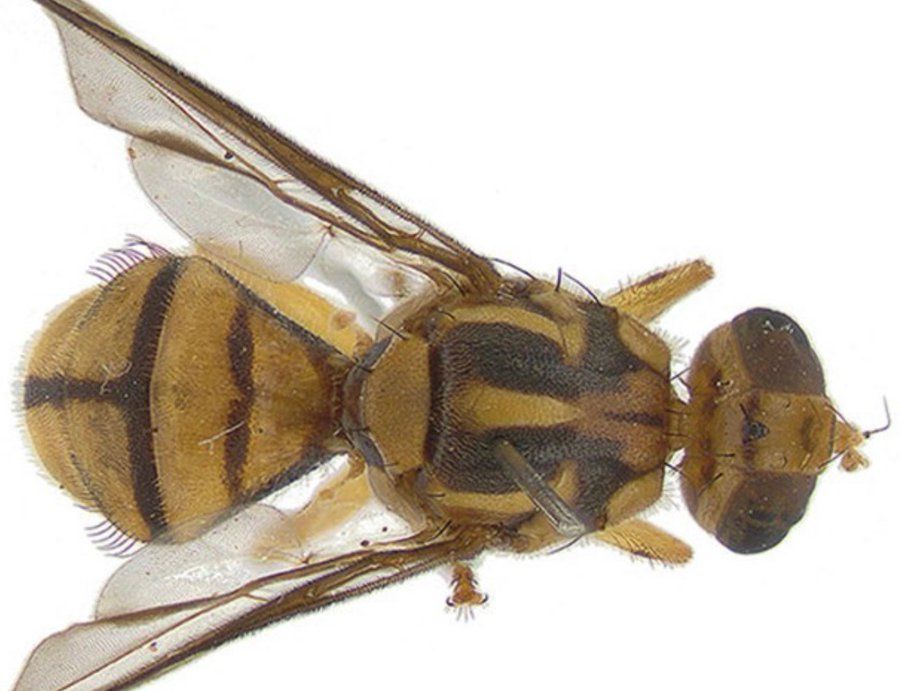An affluent neighborhood in Los Angeles was placed under quarantine after an invasive fly species was discovered in the area.
If not properly contained, the Tau fly could potentially become a “serious pest for agriculture and natural resources” according to the California Department of Food and Agriculture. This sort of quarantine is unprecedented, as it will be the first of its kind in the Western Hemisphere.
What Is a Tau Fruit Fly?

Tau fruit flies are pesky insects with yellow bodies and two dark stripes that originated in Southeast Asia. They lay eggs under the skin of fruit, and more than 100 variations of produce can serve as a host for this invasive species.
Avocados, tomatoes, and watermelons are often targets for Tau flies, and their egg-laying is often undetectable by humans. They can reproduce quickly, making them a significant threat for crops.
The Fruit Flies Could Potentially Be Disastrous forFor theThe Prestigious Neighborhood

More than twenty Tau flies were discovered in the vicinity of Stevenson Ranch in the Santa Clarita Valley, and about 30 miles from downtown Los Angeles.
Aside from the fruit fly invasion, Stevenson Ranch is a well-to-do neighborhood that appeals to many prospective home buyers, with the median cost of real estate in the area being $1.15 million. The quarantine will affect 79 square miles of land.
Officials Believe a Traveler Unknowingly Brought the Fly Into California

The flies likely entered California after a traveler brought uninspected produce into the state, and their innocent act has left the community facing severe consequences. Residents stuck in quarantine have been advised to contain any fruits or vegetables they may have at their private property.
If people decided against consuming their produce, they have been asked to place the fruits and vegetables in two plastic bags before placing the produce in the trash.
Quarantining Is Imperative to Stop The Spread of Tau Fruit Flies

The goal of the quarantine is to eradicate the species before it has a chance to spread to new areas. The Tau flies have potential to reproduce and destroy crops at an accelerated pace.
This would force farmers to use more harmful pesticides, and would take a serious toll on the state’s agricultural industry. For now, appropriate measures have been taken to ensure that the Tau fly population remains minimal.


